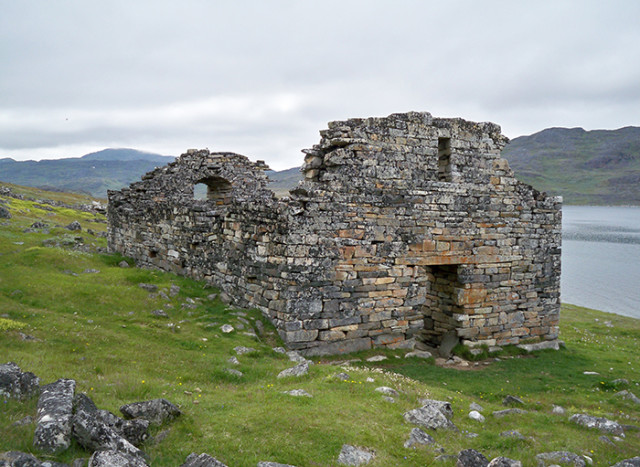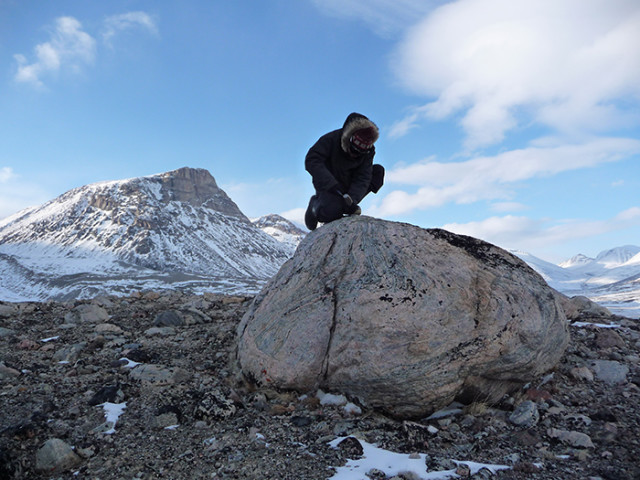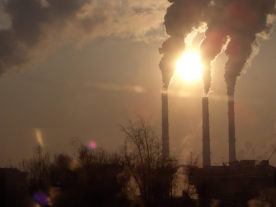
Greenland and possibly neighboring Baffin Island was settled by the Norse during what has been assumed to be a temporary warm period. They disappeared in the 1400s. Southern Greenland’s Hvalsey church is the best preserved Viking ruin. (Wikimedia Commons)
Some of those who argue against human causation of climate change often point to a number of Earth’s past climatic events and periods such as the ‘Medieval Warm Period’ and the ‘Little Ice Age’ as examples that climate change can be the result of natural and not necessarily anthropogenic in origin.
But now a new study published in the journal ‘Science Advances’ suggests the ‘Medieval Warm Period’ or ‘Medieval Climate Anomaly’, a time of unusually warm weather between 900 and 1300, may not have been the global event that had been thought.
The researchers examined a popular theory that the period’s warm weather allowed the Norse to settle Greenland in 10th century and live there until the mid-15th century when the icy conditions of the following ‘Little Ice Age’ may have driven them away.
But, the new study suggests clues left by old glaciers show Greenland’s climate was already quite cold when the people from Norway, Iceland and Denmark arrived.
“If the Vikings traveled to Greenland when it was cool, it’s a stretch to say deteriorating climate drove them out,” said said lead author Nicolás Young, a glacial geologist at Columbia University’s Lamont-Doherty Earth Observatory in a press release.
Studying Beryllium 10 isotopes in boulders left in Greenland by 1,000 years of glacial movement, the researchers found the rocks were deposited by advancing glaciers between 975 and 1275 when the Norse had arrived and settled there.
The researchers say this evidence strongly implies it was just as cold when the Norse arrived as when they left.
“It’s becoming clearer that the Medieval Warm Period was patchy, not global,” said Young.

Geologist Jason Briner, from the University at Buffalo, samples a boulder left by a glacier on Baffin Island, around the time of early Viking settlement. Measurements of chemical isotopes within the rock suggest settlers in neighboring Greenland faced cold weather. (Nicolás Young)
Young says he considers the concept of the warm period as something more ‘Eurocentric‘ than global in nature because the best known weather observations made during that time were done in Europe. He suggests the climate at that time might not have been the same in other parts of the world.
Recent research has found evidence that areas of the world such as parts of central Eurasia and northwestern North America, may actually have cooled off during that time.
The researchers say their new study may also help verify some recent notions that what was considered to be the ‘Medieval Warming Period’ was actually just an extended positive phase of an irregular climatic cycle known as the North Atlantic Oscillation (NAO).
They say a positive phase of the NAO would have brought warm air to Europe and Iceland, which would have raised temperatures there, while at the same time making regions such as southwest Greenland colder, by pulling in more air from the Arctic.






















A twenty year career in commercial broadcasting does not necessarily establish scientific Bona fides. Sounds like a government shill furthering the Obama Administration “Global Climate Change” propaganda. Why don’t you feature any opposing views? Establish a dialog between factions and let the reader decide, you know, the way it’s done in a free press.
I think it is very arrogant of mankind to think that we, insignificant little specks on the surface of this immense planet, could unintentionally or otherwise, alter the climate, or do anything about it if we did.
You may be an insignificant spec, but the 7.3 billion other people on the planet have a pretty significant impact, especially when they drive cars, eat food transported over long distances, etc. How many horses are there in the world? (estimated at 58 million). Dogs? (estimated at around 1 billion, but dogs don’t drive cars) Elephants? I HOPE you get the idea. And as far as doing something about it, we better.